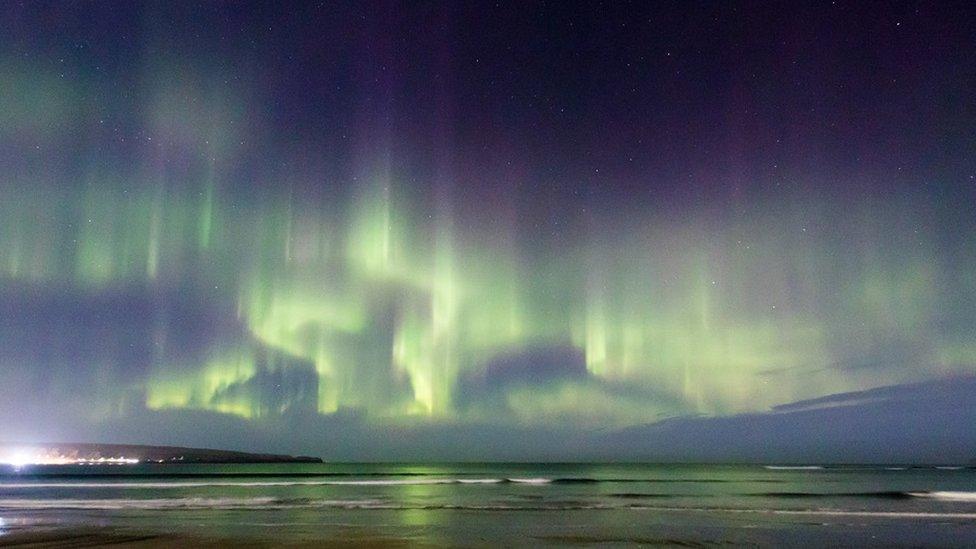Student captures stunning images of stars and galaxies
- Published
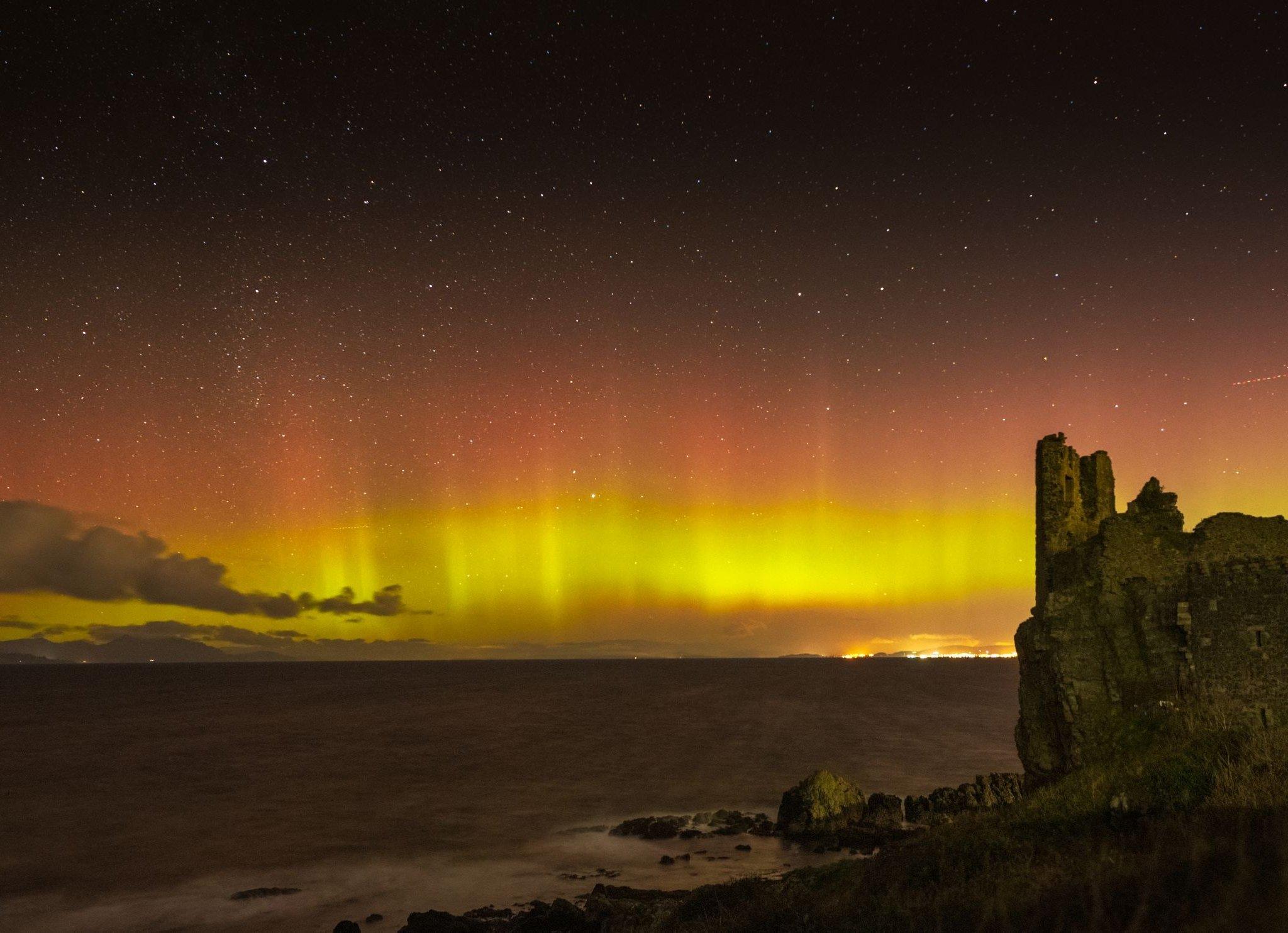
Bryan Shaw said the lack of light pollution in his local area helped him capture images like this one of the aurora borealis over Dunure Castle on the Ayrshire coast
A Scottish student has unveiled "striking" images of space he captured using a makeshift telescope in his back garden.
Bryan Shaw, a student at the University of the West of Scotland, has spent hours stargazing and gathering photographs and videos for an end-of-year project.
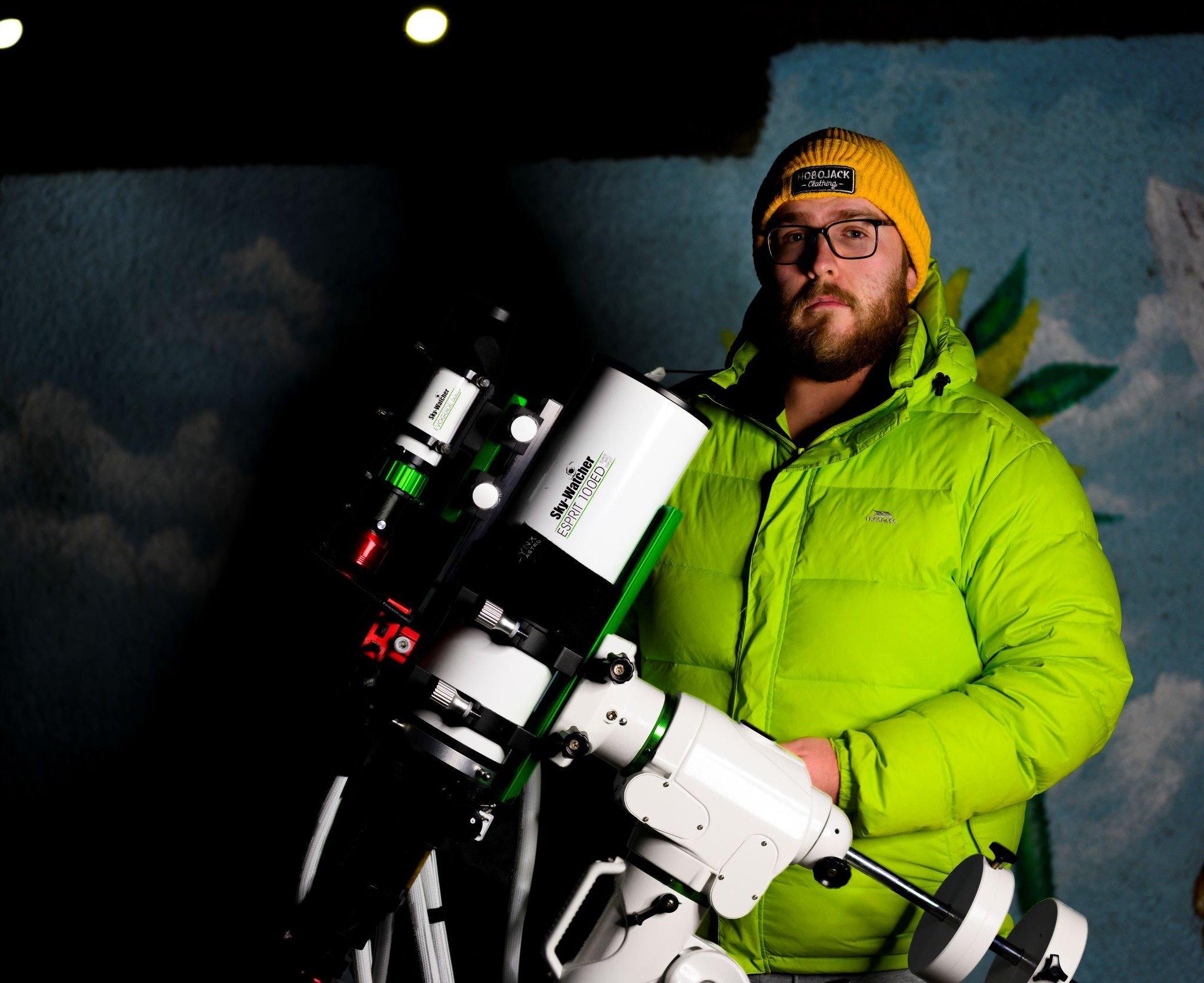
Mr Shaw said he had experimented with a number of different telescopes and lenses while learning how to take pictures of the night sky
The fourth-year broadcast production student has managed to capture detailed images of star clusters and nebulas located light years away, such as Pleiades, Andromeda Galaxy and the Orion Nebula.
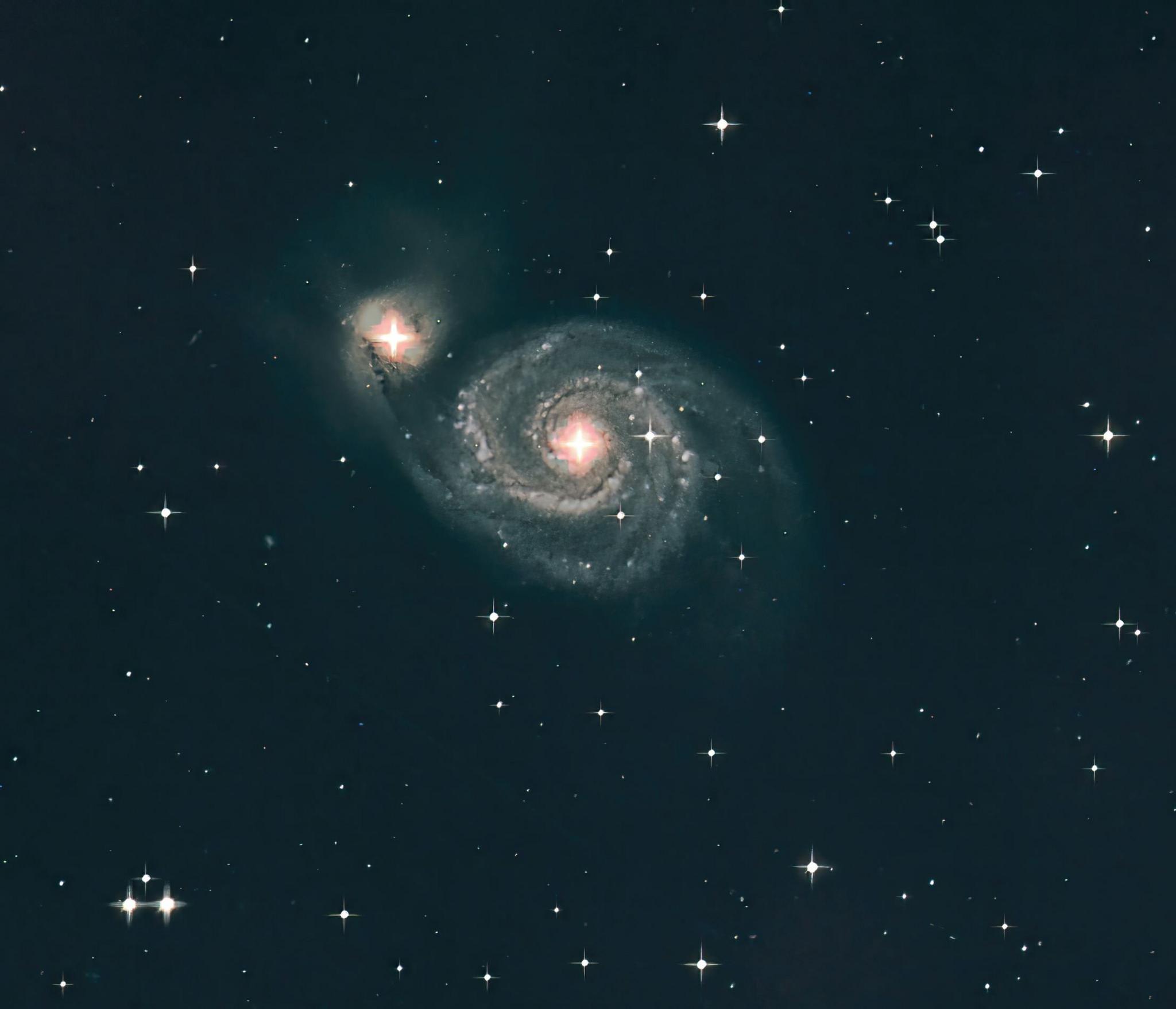
The Whirlpool Galaxy captured from Mr Shaw's telescope
Mr Shaw - who only began taking photographs of space last year - often devotes full nights to his hobby, capturing photographs of the stars outside his home in New Cumnock, East Ayrshire.
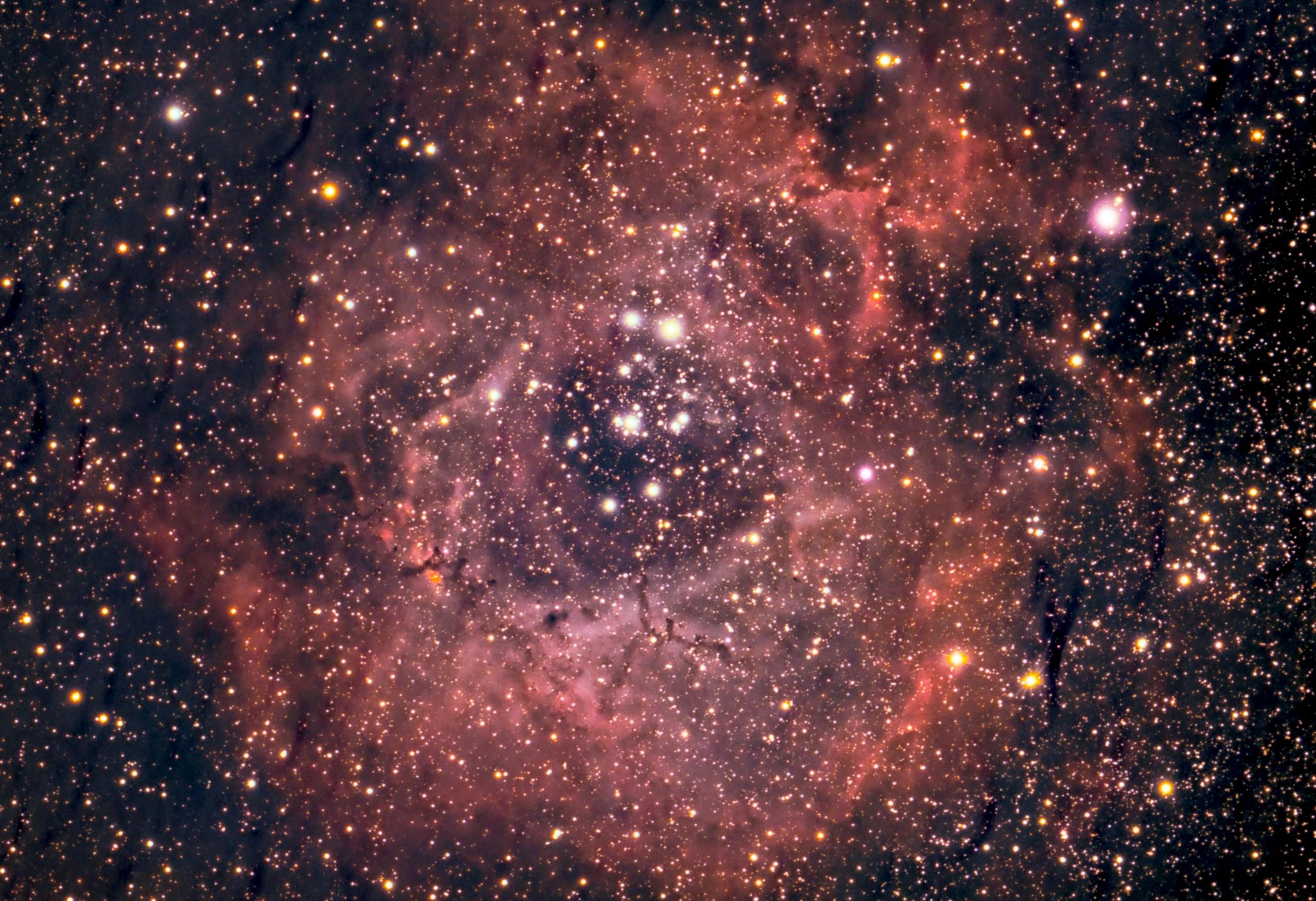
The Rosette Nebula is more than 5,000 light years away from Earth
He said: "It's time-consuming, but I really do love this. I'm planning to get a bigger telescope to advance my knowledge, and let me capture things that I can't at the moment.
"I want to take photos of individual planets, and craters on the moon - that's what I'm planning.
"My ultimate ambition is to take a photo of a nebula known as Thor's Helmet - it's absolutely stunning, and it really does look like the helmet that belongs to Thor in the Marvel movies.
"As a big Marvel fan, that has to be my big goal."
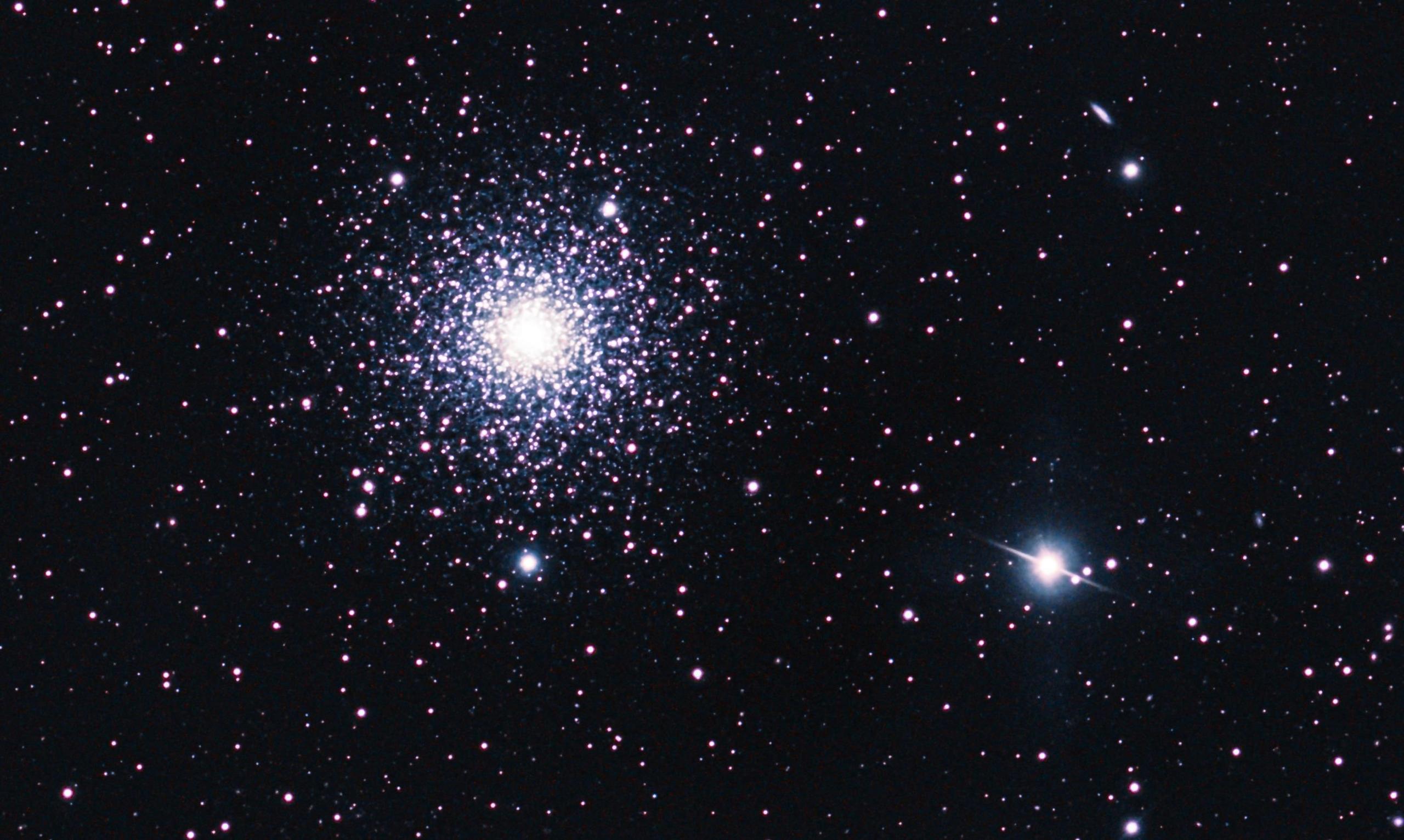
Red-giant branch stars
Dr Sheona Urquhart, who lectures in Physical Sciences at the Open University, told BBC Scotland the pictures captured "the most visually striking features of our universe".
"What I think is most exciting is that it shows that you don't need access to international, world leading observatories to achieve such incredible photographs - a reasonably straightforward set-up at home can achieve some fantastic results", she said.
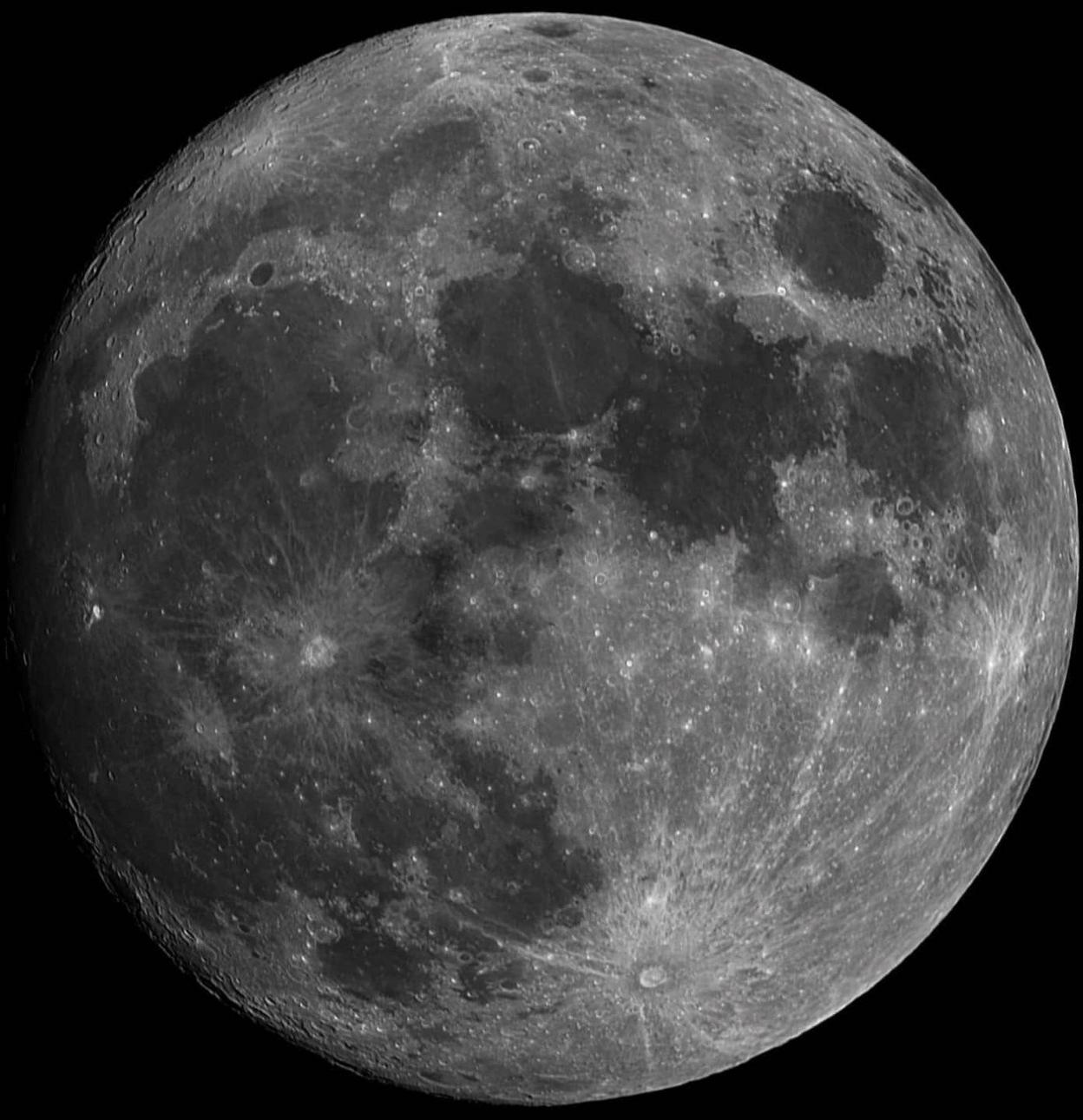
Mr Shaw said that what had started as a university project had now turned into a hobby
All photographs copyright of Bryan Shaw.
Related topics
- Published14 March 2022
